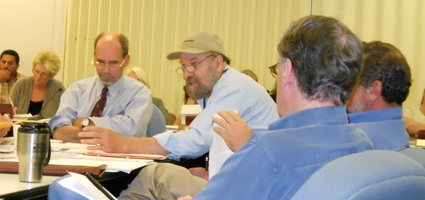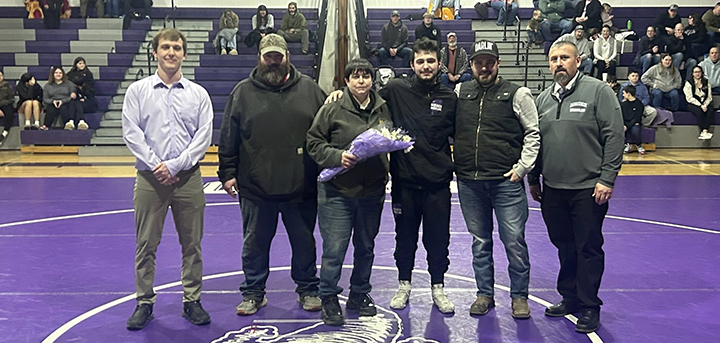Gas committee fields heated questions from those opposed to hydraulic fracturing
NORWICH – The back and forth between the county’s Natural Gas Advisory Committee Chairman and a South Plymouth resident Tuesday morning became contentious enough to call police to the Chenango County Board of Supervisors chambers.
The verbal exchange between Preston Supervisor Peter C. Flanagan and Peter Hudiburg, who is calling for a countywide moratorium on high volume horizontal hydrofracturing, calmed, however, once Flanagan insisted Hudiburg and other visitors allow him to address the meeting’s agenda and that they raise their hands to speak.
“I think you’re going to see more of this in the future,” said Town of German Supervisor and committee member Richard Schlag after the meeting. “We’re going to have to establish stricter rules for procedure.”
It was the third time Hudiburg was joined by a like-minded group of drilling protesters at a meeting of county lawmakers, though this time there were more. A crowd of 24 signed in, making the attendance, along with committee members and other county officials, about 35. The visitors asked technical questions about seismic testing, natural and stress fractures in shale and the dangers of pollution from both hydraulic fracturing fluids left underground and formation water brought back to the surface.









Comments